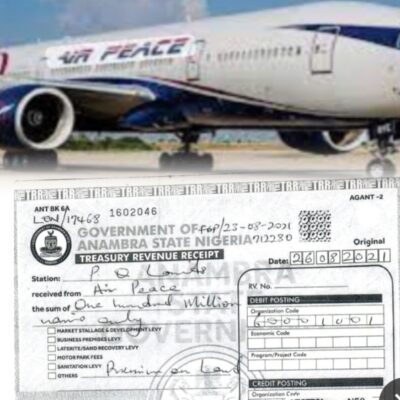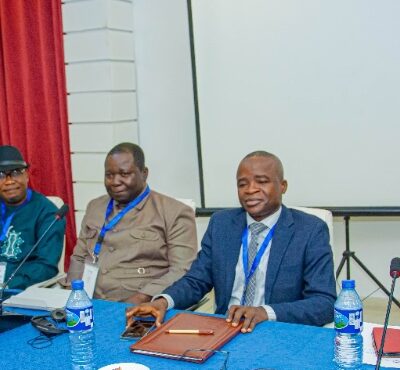
BY OLAPEJU OLUBI
The Nigerian Safety Investigation Bureau (NSIB) has responded to international concerns over the safety of the country’s airports, clarified its role in the investigation of the helicopter crash that killed banking executive Herbert Wigwe, and announced progress in its new mandate covering air, road, rail and maritime transport.
During an interview on Arise News, the Director General of the NSIB, Captain Alex Bade Jr., countered a recent statement by the United States Transportation Department that cast Nigerian airports as “generally unsafe.”
According to him, the claim oversimplifies a complex reality. “While there is always room for improvement, the NSIB does not concur with the assessment that Nigerian airports are generally unsafe. It’s crucial to consider the context and metrics used in such evaluations,” Captain Bade said.
He admitted that some Nigerian airports face issues such as poor perimeter fencing and occasional wildlife intrusions, but insisted these challenges are not unique to Nigeria.
“It’s unfair to generalise that our airports are totally unsafe. We recognise the need for continuous improvement, and we commend the efforts of the Federal Airports Authority of Nigeria (FAAN) in implementing upgrades,” he added.
One recent case involved an aircraft at Asaba Airport encountering animals on the runway.
Bade clarified that the incident did not affect the aircraft’s condition or schedule. “The aircraft was fine and continued its journey to Abuja without any damage.
The incident was reported to the Nigerian Civil Aviation Authority (NCAA)… However, we plan to reach out to the private entity managing the airport to discuss best practices,” he said, noting that such incidents are rare.
Addressing public curiosity around the tragic helicopter crash that killed Wigwe earlier this year, Captain Bade corrected widespread reports that the NSIB worked “side-by-side” with U.S. investigators.
“We were an interested party, and were kept abreast of the process by the NTSB, who led the investigation in the U.S.,” he explained.
The final report from the U.S. National Transportation Safety Board (NTSB) attributed the crash to spatial disorientation, but also highlighted deficiencies in the operating company’s risk management processes.
“It appears there were systemic issues, and the flight risk assessment should have indicated a higher risk. While it’s easy to blame the pilot, there is a system behind the pilot that should have mitigated these risks,” Captain Bade noted.
The NSIB chief also provided updates on the Bureau’s growing responsibilities following the enactment of its Establishment Act in 2022.
The law makes the NSIB Nigeria’s sole accident investigation agency across all major transport modes—aviation, maritime, rail, and road.
“We are developing the necessary frameworks, including maritime investigation regulations, training manuals, investigation procedure policies, and manuals. The maritime and rail frameworks are complete, and we are engaging stakeholders for their buy-in,” Bade said.
With this expanded mandate, the NSIB aims to strengthen transport safety nationwide by conducting transparent and independent investigations into accidents and incidents.
The Bureau reaffirmed its commitment to preventing future tragedies by upholding international standards and continuously improving Nigeria’s accident investigation systems.





